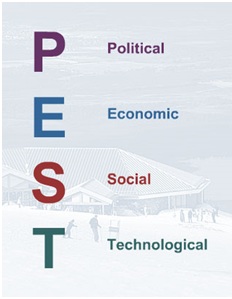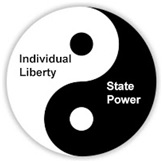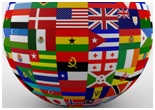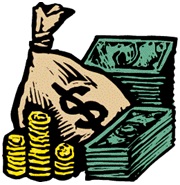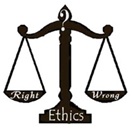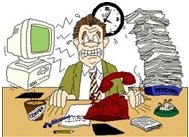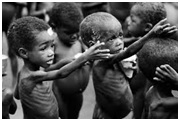|
 |
|
 |
The external environment
The external environment is... The world outside an organization. It has four main parts (normally abbreviated as PEST): a) political Government action and changes in the law.
b) economic Changes in the economy (particularly people’s incomes and competition between companies).
c) social Changing social factors like fashion, crime, health, population and the environment.
d) technology Changes in technology that lead to new and better products.
This PEST analysis is used in corporate strategy as part of the SWOT analysis (evaluating the organization’s internal strengths and weaknesses and opportunities/threats in its external environment).
Big issues in the external environment
1. Political a) state or individual? Government interference or personal liberty. Self-help or state help?
b) priorities between government spending The biggest spenders are health, social services, education, transport, housing and local government, and defence.
c) taxation Will high government spending (and so the need for higher taxes) destroy new businesses and people’s will to work?
d) international terrorism (particularly from Islamic groups after 9/11). e) international politics (particularly relations between America, the EU, Arab countries, Russia, Japan and China) Can they co-operate to solve problems like climate change, world famine and the Middle East conflict?
2. Economic
a) increasing global competition (particularly from countries like China and India with lower wages). b) globalization Global companies like Coca-Cola selling products worldwide and so extending the influence of American culture.
c) rising incomes (the amount people can spend after paying taxes).
d) rising
customer expectations (for better products at lower prices).
e) wealth creation Increasing a country’s income and production to pay for material goods including health and education.
3. Social
a) the environment
b) violent crime (increasing crime even in schools).
c) morality
d) distribution of income and wealth The increasing gap between rich and poor; and the balance needed between:
e) relationship problems
f) health – rising health costs from an ageing population and increasing drug prices.
g) change Work and life are changing ever more quickly, making lifelong learning and education more important.
h) information society Knowledge is vital to be successful (called a knowledge economy) but finding knowledge from mountains of information (via the Internet) isn’t easy. i) famine and disease (particularly in Africa, pictured right).
j) culture Quality entertainment is needed to make us happy and educated.
4. Technological
a) wider use of smaller, more intelligent computers The constant increase in computer power is phenomenal.
b) people Science and technology can’t ignore people’s needs and must provide creative solutions to their problems.
c) genetic engineering (biotechnology) (cloning and new drugs and cures).
d) Internet Improving quality of information from the Internet (revolutionizing communication, entertainment, education and learning).
Key quotes explained
“Want, disease, ignorance and squalor” - Lord Beveridge’s (pictured right) four evils. The Beveridge Report in 1944 concluded that Britons needed government help (the welfare state) to remove these evils.
But you also need personal responsibility and community action – a society is what we make it. “The life of the nation is secure only while the nation is honest, truthful, and virtuous”, said Frederick Douglass, the American anti-slavery campaigner You can’t get something for nothing – if you spend money on one thing, you can’t spend it on something else (the economist’s idea of opportunity cost).
“Earth provides enough to satisfy every man’s need but not every man’s greed” - Mahatma Gandhi ,Indian leader (pictured right) The greedy pursuit of money will destroy the planet. “We borrow it from our children”, says a Native American proverb, and so we have a responsibility to preserve it. Gandhi also said that we must slow down and give ourselves more time to reflect on the damage we’re inflicting on our souls and the world. We must pay at least as much attention to morality as to money, so we have the wisdom to cope with accelerating social and scientific change. “Our scientific power has outrun our spiritual power”, lamented the American civil rights leader, Martin Luther King.
“Those who do not remember the past are condemned to repeat it” - George Santayana, American philosopher (pictured right) We won’t have a better future unless we learn the lessons of the past, particularly the evil of inhumanity to man (such as the Holocaust and unnecessary wars). If we don’t, we’ll keep on making the same mistakes.
“We are drowning in information and starved of knowledge”, - John Naisbitt, American futurist (pictured right) The Internet has given us the challenge to find knowledge and wisdom from the mountain of information available.
Best books
Alvin Toffler’s (pictured right) trilogy: Future Shock (1971), The Third Wave (1981) and Powershift (1991) The world’s biggest challenge is to cope with accelerating change and avoid over stressing people. Stress is the result of change happening faster than people’s ability to cope with it (“future shock”) The “Third Wave” is the post-industrial age when power is transferred to the knowledgeable (“powershift”). (For more detail see Future Shock and The Third Wave in the Business Books section.
J.K. Galbraith (pictured right) , The Affluent Society (1958) People’s wealth is mixed with poor public services (“private opulence, public squalor”). The wealthy protect their position through what his 1992 book called a “culture of contentment” based on selfishness and greed.
Charles Handy (pictured right), The Age of Unreason (1989) He predicted the “shamrock organization” that has three parts:
a) small, full-time workforce.
b) part-time and temporary employees (to hire and fire when needed).
c) outside contractors (external organizations providing goods and services). (For more detail see The Age of Unreason in the Business Books section).
Fritz Schumacher Supports “technology with a human face”, using technology to develop people’s skills and potential. So in poor countries it must be cheap, easy to use and available to everyone. (For more detail see Small Is Beautiful in the Business Books section).
Peter Schwartz Create scenarios (or predictions) of the future based upon two or three of the most important and likely trends in each of the four PEST categories (political, economic, social and technological). Then work out the implications of these scenarios for the organization’s corporate strategy.
John Naisbitt, Megatrends (1984) Technological progress must be balanced with people’s needs for love and human contact (“high tech/high touch”).
David Riesman (pictured right), Nathan Glazer and Reuel Denney, The Lonely Crowd (1950) “Other-directed” people do what others (like their "peer group") do and want, not what is best for them. They aren't true to themselves and their principles, lacking autonomy, self-knowledge and meaningful relationships. So they are the “lonely crowd” who are “at home everywhere and nowhere”. |
|
|
||
|
|
|
||
|
||
| Copyright © wisdomtowin.com All Rights Reserved | ||
|

